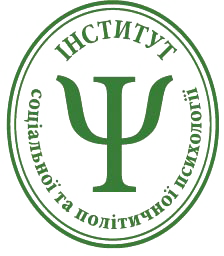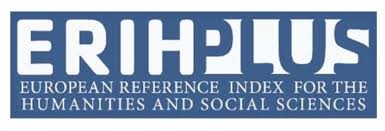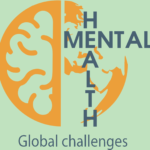Socio-psychological criteria for mutual selection of adoptive parents and children deprived of parental care as prognostic signs of the mental health of their future family
DOI:
https://doi.org/10.32437/mhgcj.v4i2.79Keywords:
mental health, orphans, child, adoptive family, parental careAbstract
Introduction The modern national child welfare system assisting children deprived of parental care aims at changing priorities in favor of family placement. However, this process is complicated by the lack of socio-psychological mutual selection of potential adoptive parents and orphans or children deprived of parental care. It is not taken into account that future parents will have to interact with children whose behavior is affected by maternal deprivation. At the same time, the cases of returning children back to orphanages make it especially important to study the factors that affect the quality of an adoptive family, i. e. its psychological health or its dysfunction.
Purpose To determine the socio-psychological criteria for the mutual selection of adoptive parents and orphans or children deprived of parental care.
Methodology The study was conducted in the period of 2017–2020. For the purpose of studying the socio-psychological factors that affect psychological health of an adoptive family, a semi-structured interview was used. It was conducted at the premises of the Kyiv City Orphanage in Vorzel and included observation (81 hours) in a psychotherapeutic group for adoptive parents at the premises of the personal development center "Fermata", Kyiv. The study involved 50 people aged from 27 to 50.
Results and Discussion The results of our study showed that there are a number of features inherent to expectant parents who usually have difficulties in raising adopted children. Thus, parental image characteristics of adoptive parents are correlated with the severity of their psychopathological symptoms, which affects the behavior and development of the adopted child in a family. Adoptive parents whose parents had conflicting relationships showed high rates of interpersonal sensitivity, anxiety, and intensity of experienced distress. Unconscious parental prohibitions and mini-scenarios of adoptive parents (Berne, 1964) were usually directed at adopted children, which led to disorders or deterioration of their behavior. Very often adopted children experience psychological traumas identical to those their adoptive mother or father is not aware of and represses. This leads to an aggravation of conflict in the child-parent relationship because the child begins to act as a kind of trigger for the repressed trauma of the adult. Therefore, the first criterion for mutual selection can be determined as the presence/absence of unconscious psychological trauma of the adoptive parents and the intrapsychic scenario of conflict-ridden relations within the parental couple.
The results of our study proved that harmonious relationships of a married couple become a resource for adoptive parents in difficult periods of interaction with children, and in a dysfunctional family the emergence of difficulties only exacerbates the negative psychological state of parents, thus, children's behavior deteriorates. Therefore, the process of adapting and re-living the traumatic experience of the child in the family depends on how constructive marital relationships are. Thus, the second socio-psychological criterion of mutual selection is the type of marital relationship of a married couple – harmonious or disharmonious.
Analysis of our work with adoptive parents has shown that the specific nature of the couple’s motivation to adopt a child plays an important role in whether an orphan or a child deprived of parental care can re-live their psychological trauma and eliminate it. Thus, the unconstructive motivation of adoptive parents can include (according to Melnychuk T. I. and Bevz G. M. (2016)): abatement of emotional pain caused by the loss of a blood child, preservation of poor marital relations, psychological pressure of relatives on the couple about adopting a child to the family, desire to avoid lonely aging. These motivations are aimed at solving their own psychological problems and needs, not at helping the child. Therefore, often the children of such parents are stuck in their worries and emotions, which is manifested in behavioral disorders as well as formation or increase of neurotic manifestations. Almost all adoptive parents with unconstructive motivation were not ready for psychological work in a mutual support group and left it. Thus, the third criterion of mutual selection can be determined as motivation of future parents to adopt a child.
The experience of work with adoptive parents who have already adopted children has shown that the indicator of successful adaptation of a child in the family is played by future parents’ personality traits: level of anxiety, stress, emotional stability (Malkhazov, 2017), disposition. During the process of mutual selection, it is important to take into account and evaluate the personality traits of both adoptive parents and children, as they will further affect the psychological health of the family and how adoptive parents will overcome the difficulties that arise in the process of adaptation and development of the child. Parents with high levels of anxiety and low levels of distress tolerance, as a rule, have more problems in raising children, especially those who have experienced family life and are keeping some memories or children who have been abused. Thus, the fourth criterion of mutual selection is the adopters’ individual psychological characteristics.
Psychological traumas that children received as a result of maternal deprivation or abuse in their biological family, negatively affect the formation of their attitudes, which is manifested primarily in emotional and behavioral disorders. Analysis of the child's life story and observation of their behavior in an orphanage or foster family makes it possible to predict their adaptation in a new family and give appropriate recommendations to adoptive parents. Therefore, a child's life story can be determined as the fifth socio-psychological criterion of mutual selection. This includes a child’s age, degree of emotional attachment to blood parents, circumstances that led to parental care deprivation, analysis of the child's psychological experience in the biological family, number of previous psychological, social etc. losses, time spent in an orphanage).
As the sixth criterion of mutual selection, we determine the assessment of a child’s cognitive development. Its results will show whether the child has been pedagogically neglected or has organic disorders and the psychologist and psychiatrist will provide recommendations for the child’s upbringing and make a forecast of further development. This information will help to place the child in a family that has the resources and will be ready to raise it, understanding what difficulties it may face in the future.
As the seventh criterion of mutual selection, we determine a child’s individual characteristics (temperament, emotional and volitional development, level of anxiety, and sense of security). Assessment of a child’s individual characteristics makes it possible to predict possible behavioral disorders and provide recommendations for their solution, as well as to select those adoptive parents who have the resources to meet the needs of the child.
The results of the socio-psychological assessment based on the criteria defined above will allow potential adopters to realize their strengths and weaknesses, and to decide on adoption more consciously or to refuse adoption until the family or one of the spouses solves their psychological problems.
Socio-psychological mutual selection will help to place a child in the family that can provide necessary conditions for the healthy development and resolving traumatic experience. Of course, this does not guarantee that adoptive parents will not have difficulty interacting with children, but will increase the family's willingness to address them in child’s favor.
Conclusions. The main cause of adoptive family disorders is the unresolved and repressed psychological problems of potential parents, which they had long before the adoption and their lack of balanced assessment of their own weaknesses and strengths as caregivers of an orphan or a child deprived of parental care. Therefore, socio-psychological mutual selection of adoptive parents and orphans or children deprived of parental care will play a significant role in preventing adoptive parents from returning children back to orphanages and in guaranteeing the psychological health of their family)
References
Main N.V. (2014) Images of parents in potential adopters: an empirical study. Vestnyk Kostromskoho hosudarstvennoho unyversyteta. Seryya: Pedahohyka. Psykholohyya. Sotsyokynetyka, t. 20, ? 3, 169–174. T. 20, ? 3, 169–174.
Berne, E. (1964). Games People Play: The Psychology of Human Relationships. New York, Grove Press
Malkhazov, O. R. (2017). The Theoretical Framework of Emotional Resilience Studying. Scientific Studios on Social and Political Psychology, (40 (43), 62-71. https://doi.org/10.33120/ssj.vi40 (43).61









 E-mail us: viktor.vus@mhgcj.org
E-mail us: viktor.vus@mhgcj.org 